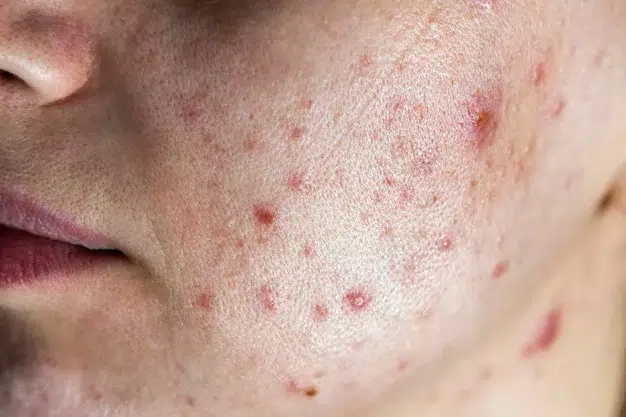Understanding and Treating Acne

Acne is a common skin condition that can happen to people of any age, not just teenagers. It can manifest on the face, chest, and back — often resulting in pimples, blackheads, and inflammation. For many, it’s much more than a cosmetic issue; it can influence self-esteem and confidence. The good news is that a plethora of successful acne treatment solutions are available today, including everything from over-the-counter products to individualised professional care that addresses the underlying cause.
What Is Acne?
Acne is a condition that develops when hair follicles become clogged with oil and dead skin cells. A major player is the sebaceous glands — the ones that produce sebum (natural skin oil). When sebum production increases or when pores become clogged, bacteria can proliferate, leading to inflammation. Acne ranges in severity, from blackheads and whiteheads to more severe types such as nodular or cystic acne.
Knowing the definition of acne provides guidance in selecting an appropriate treatment option.
Types of Acne: From Mild to Severe
There are many types of acne, and it’s important to properly identify them:
- Whiteheads and blackheads are non-inflammatory, meaning they are not caused by infection, but rather clogged pores. Whiteheads are closed, while blackheads are open and turn dark.
- Papules and pustules: Papules are small red bumps with inflammation, while pustules contain pus.
- Nodular acne and cysts: These are painful lumps that settle deep under the skin and are indicative of severe acne.
Identifying the types of acne assists with the relevant acne treatment. If you experience nodular acne, we would highly recommend getting medical help, as it can lead to scarring without proper treatment.
Best Acne Treatment: Medical & Over-the-Counter Options
The most effective acne treatment will vary depending on your skin type and the severity of the condition:
- Over-the-counter options typically contain benzoyl peroxide, salicylic acid, or retinoids that help unclog pores and reduce bacteria.
- Prescription treatments can include topical or oral antibiotics, hormonal therapy (for women), or isotretinoin for severe cases.
- Acne pimple master patches provide specialist treatment for individual spots, while working to reduce redness in a matter of days.
Consistency is key. The best acne treatment is based on acne type and skin type — and results are frequently gradual, not immediate.
How to Get Rid of Acne: Daily Skincare & Lifestyle Tips
The first step in managing acne effectively is good skincare and smart choices in lifestyle:
- Keep cleansing gentle — twice a day is sufficient. Too much washing can make skin feel even more irritated.
- Use non-comedogenic moisturisers and sunscreens that won’t clog up your pores.
- Stay away from heavy makeup or hair products that could cause breakouts.
- Above all, do not pick or squeeze pimples — it can increase the risk of scarring.
Step one to learning how to remove acne is a proper skincare routine.
How to Get Rid of Back Acne (Bacne)
Back acne is typically caused by sweat, rubbing from tight clothing, and bacteria. Here’s how to manage it:
- Shower after you sweat and wear clothes made from breathable fabrics.
- In the shower, use body washes containing benzoyl peroxide or salicylic acid to slough off and kill bacteria.
- Be sure to exfoliate once a week to sweep away dead skin cells.
Looking for a way to deal with back acne? Hygiene and targeted treatments are helpful.
Hormonal Acne Treatment: Managing Breakouts
Hormonal acne tends to flare up around menstruation or under stress. Treatment may involve:
- Hormones (anti-androgens) or contraceptive pills to manage hormones (for females).
- Topical retinoids and salicylic acid to decrease clogged pores and inflammation.
- Lifestyle modifications, including stress reduction and dietary changes, may also be beneficial.
Prescription solutions can be the best route for long-term control when hormonal acne treatment is needed.
Infant Acne: Causes & Care
It commonly develops in babies during the first few weeks of life. It’s benign and typically resolves on its own:
- Only use lukewarm water to cleanse; do not use soaps and lotions unless directed.
- Avoid scrubbing or using adult acne products.
Infant acne causes no harm, but care must be taken to avoid infections. Always seek paediatrician consultant if the condition worsens.
Conclusion
With the right skincare, lifestyle, or medical treatment approach, acne does not have to be debilitating. The first step toward relief is to recognise the type and severity of acne. For those who have switched out products in their skincare but still find that their acne is lingering or getting worse, a visit to a dermatologist at Chase Lodge Hospital can provide solutions tailored to your specific needs. Less-splotchy skin is definitely in your future, with the right care.